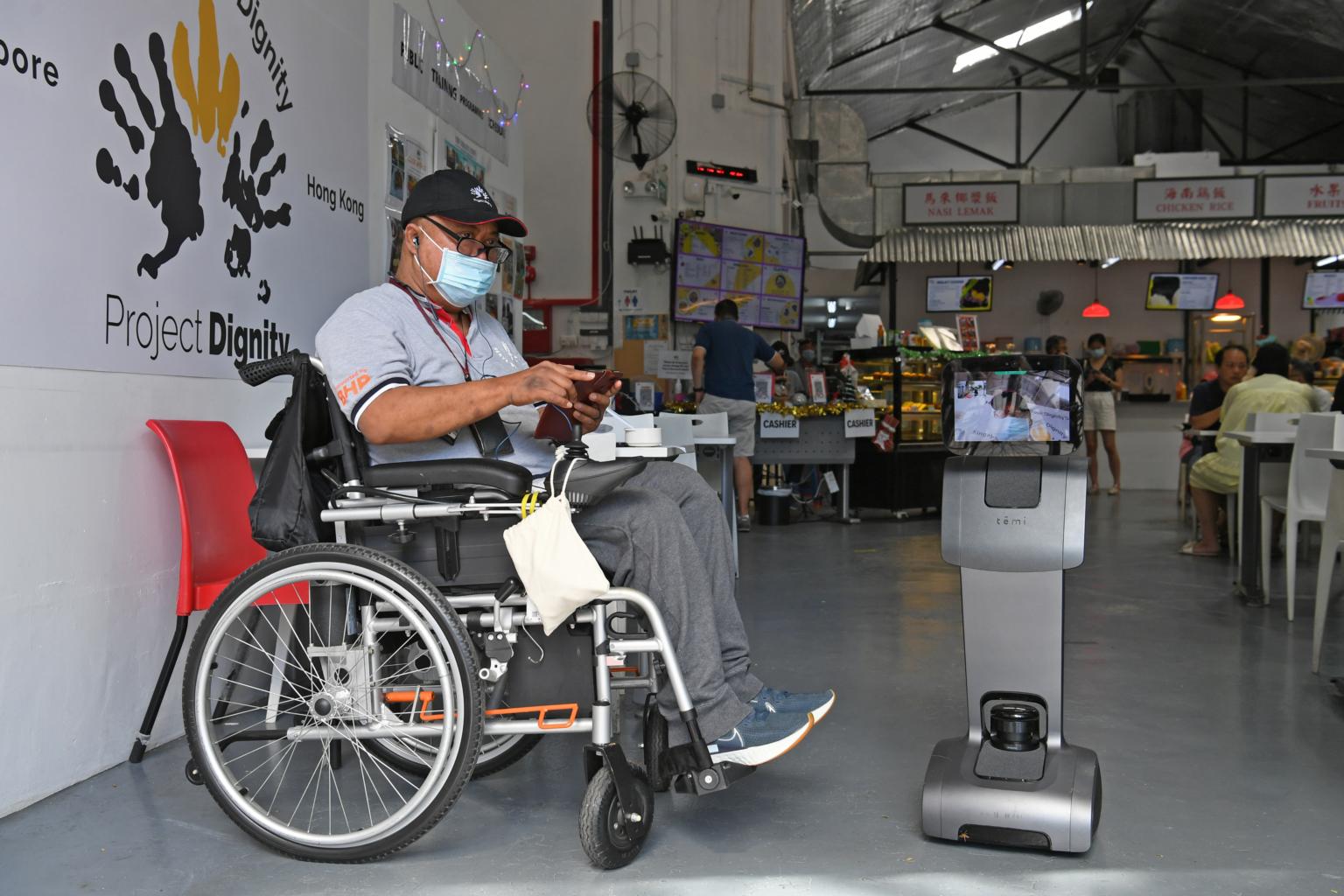Causes Week 2021: Special needs hawker centre turns to tech to prepare trainees and staff for work
Causes Week, which is into its 10th iteration, runs this year from Dec 21 to 25. It shines a light on various individuals and groups, and shows how they are making a difference through their chosen causes within the community, for children and youth, in sports and the arts, among others.
Sign up now: Get ST's newsletters delivered to your inbox

Mr Jalil Salleh, an amputee working at Dignity Kitchen, controlling a robot using his mobile phone.
ST PHOTO: DESMOND FOO
SINGAPORE - From around the corner, a robot rolls in with a plate of piping-hot kolo mee and a talking face on a screen.
The face belongs to Mr Jalil Salleh, 53, an amputee working at Dignity Kitchen - a hawker-cum-training centre for differently abled individuals.
The robot is an example of how the kitchen has incorporated technology into its training programmes to better prepare those with disabilities for work.
Started in 2010, Dignity Kitchen has helped around 400 differently abled people to get jobs in the food services sector. It currently employs 86 people who have passed its training programmes.
But the Covid-19 pandemic led to a decrease in demand for in-person food services, and Dignity Kitchen's business was hit hard. It needed to find alternative ways to generate revenue.
That also meant that training for its staff had to be changed.
Mr Koh Seng Choon, the founder of Dignity Kitchen, said: "We realised that training our staff in simple food services work - like preparing food - would be inadequate should a pandemic strike again.
"As a result, we decided to turn to technology to create jobs through innovation."
One of its first experiments with technology began in April, when it started the Dignity on Wheels project, where staff using electric wheelchairs delivered food to customers living within a 1km radius of the foodcourt in Boon Keng.
It eventually introduced other technological innovations, such as the robot waiting services, which Mr Jalil piloted, and sustainability technology to keep pace with developing trends.
With Singapore attempting to produce at least 30 per cent of its food supply locally by 2030 and zero waste becoming a national priority, Mr Koh realised that people with skills in food waste management and urban farming will be in demand in the coming years.
His kitchen created a small urban farm to train staff to tend to vegetables grown on hydroponic shelves. A food composting section teaches them how to make enzyme cleaners from fruit rinds.
Workers were matched to specific tasks based on their skills and limitations.
For instance, a 17-year-old with autism was assigned to urban farming training because his attention to detail and need for structure make him well suited to checking on plants regularly.
Mr Koh said he hopes the new training focus will mean that Dignity Kitchen's beneficiaries will continue to be in demand in the labour market.
He added: "If you find a place suitable for these people, you'll find that they can contribute to society.
"My staff deserve to be able to work and find meaning in life."


